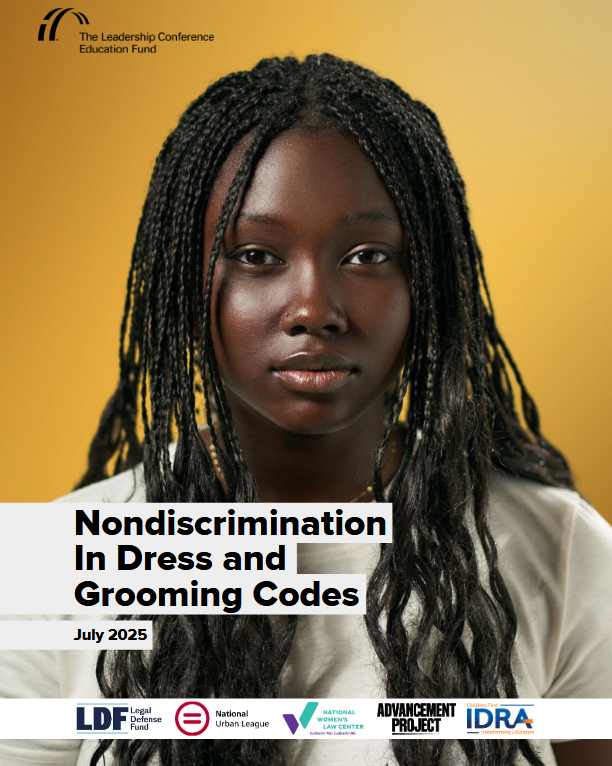New Policy Brief Exposes Harms of Discriminatory School Dress and Grooming Codes

July 29, 2025
Washington, DC — The Leadership Conference Education Fund — in collaboration with the Legal Defense Fund (LDF), National Urban League, National Women’s Law Center (NWLC), Advancement Project, and Intercultural Development Research Association (IDRA) — today released a new policy brief titled “Nondiscrimination in Dress and Grooming Codes.” The brief describes the ways that students continue to experience race, national origin, and sex-based discrimination in the administration of dress and grooming codes, provides students, educators, and advocates with critical information about civil rights protections, and calls for policy changes to protect students.
“Policing students’ dress and grooming — including natural or protective hairstyles and hair textures, hair-coverings, clothing that reflects their gender or cultural identities, and tribal regalia — may target students based on their identity, including their race, ethnicity, or gender, and is unlawful discrimination,” the brief states. “Such policies and practices also miss opportunities to welcome and include all students in the school community.”
The brief also includes concrete recommendations for school systems, including urging them to:
The full brief is available here.